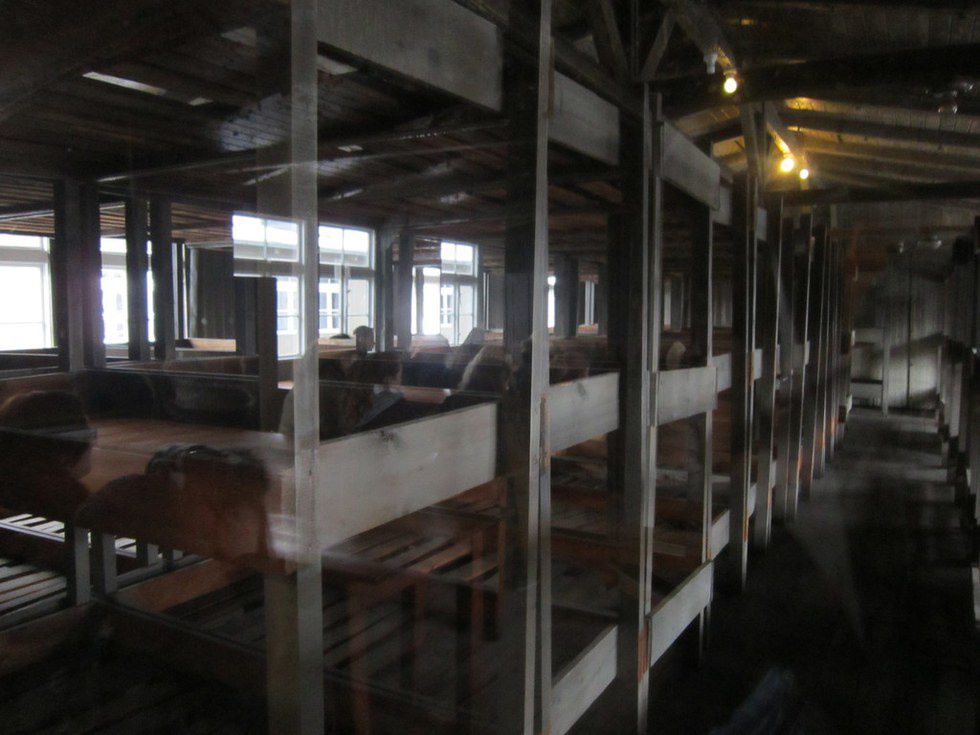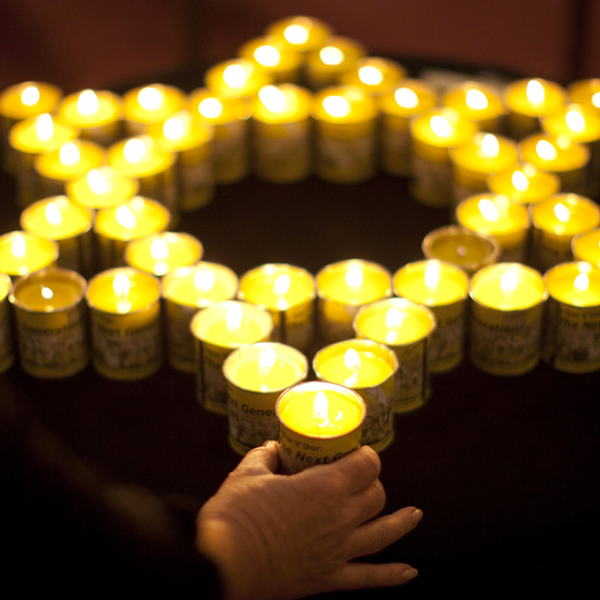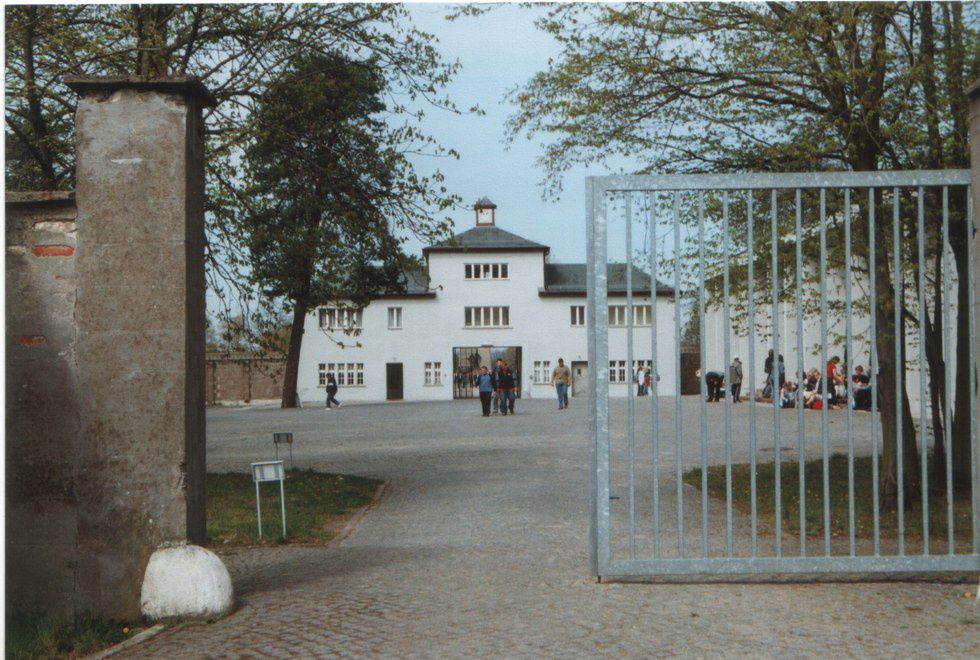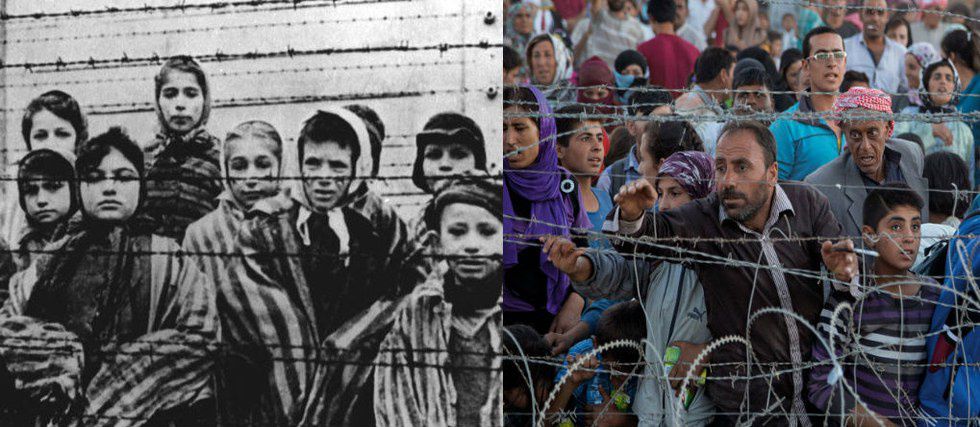It was only a few days ago that I got the chance to travel to the capital city of Germany, Berlin. One of the things I did there was visit the concentration camp of Sachsenhausen, situated 40km north of Berlin. Although this one wasn't one of the biggest concentration camps used by the Nazis, it was one of the most important ones, both because it's very close to Berlin and because it was where the SS would try out the punishments they would then expand to the rest of the camps.
As you can imagine, it wasn't a pleasant tour.
We started off walking around the SS headquarters--which are now part of a police academy. The buildings were nice, but what really drew my attention was all the green surrounding them--huge, beautiful trees, and even a small lake--which made me feel calm, and even free. This used to be a place for the SS to forget all the horror going on on the other side of the wall behind their houses, so that they could do their job more efficiently.
Of course, that's where the beautiful scenery ended. As soon as I walked through the A tower, the place from which the whole camp could be watched, a feeling of dread and sorrow settled over me. As I walked into the only two barracks that were still standing--the others had been torn apart after the war so that people could use the wood for heating--I noticed how the characteristic smell of death was still lingering on the brown, wooden walls. In a room as small as 20m2 stood twenty twin-sized bunked beds, and each one had been shared by three people. They lived so cramped that they all had to turn around at the same time if they wanted to fit in their bed. These barracks had been built to fit up to a hundred and fifty people, but where often used by over four hundred. The people inhabiting the barracks were given fifteen minutes in the mornings to wash up and head to the main square to be counted, but they only had ten toilets and ten sinks. Those who didn't make it on time were shot to death.
The very moment I walked out of the barracks I was hit by a cold breeze of wind--even though we were in July--and so I put on my jacket. I couldn't help but think that if it was so cold in the camp in summer, how cold must it have been in the winters? And especially, how cold must it have been for those who weren't allowed to own a jacket?

Sachsenhausen was a concentration camp, not an extermination camp, but since it was where the SS used to experiment on, it did have a gas chamber. The URSS blew it up shortly after they liberated the camp in April 1945, but it's foundation is still there. Being in the chamber was much worse than any other place in the camp. Known by the SS as the Station Z, it was the last place the prisoners were taken to before they were killed, and then cremated. It is surrounded by monuments and tombstones, built on top of the human ashes that were found there. Never in my life have I been to a place that imposed on me more respect than this one.
Approximately 200,000 people died in the camp in between 1933 and 1945.
The pain and the fear the prisoners must have felt in the camp stayed with me long after I made it back to my hotel, and it's still with me now. And I have spent so long thinking about this that I ended up realizing something I should have realized a long time ago.
We are still putting people in concentration camps.
What is the difference between theses two pictures?
Only that one was taken in 1945 and the other in 2016. We haven't learned from our mistakes. We keep treating people like they aren't human beings because we don't like where they come from, their way of thinking, their religion or their ideals. Because we are scared of them. Western society tends to not care about anything that doesn't involve them personally--our way of thinking is "it doesn't affect me, it isn't important". But guess what? It is important. People are people, no matter if they're Christian, Muslim, Jewish or atheists. No matter the color of their skin. And no matter their sexuality.
This is something we need to learn and our "perfect" western society needs to work on.
We are supposed to learn from past mistakes, not let history repeat itself.























